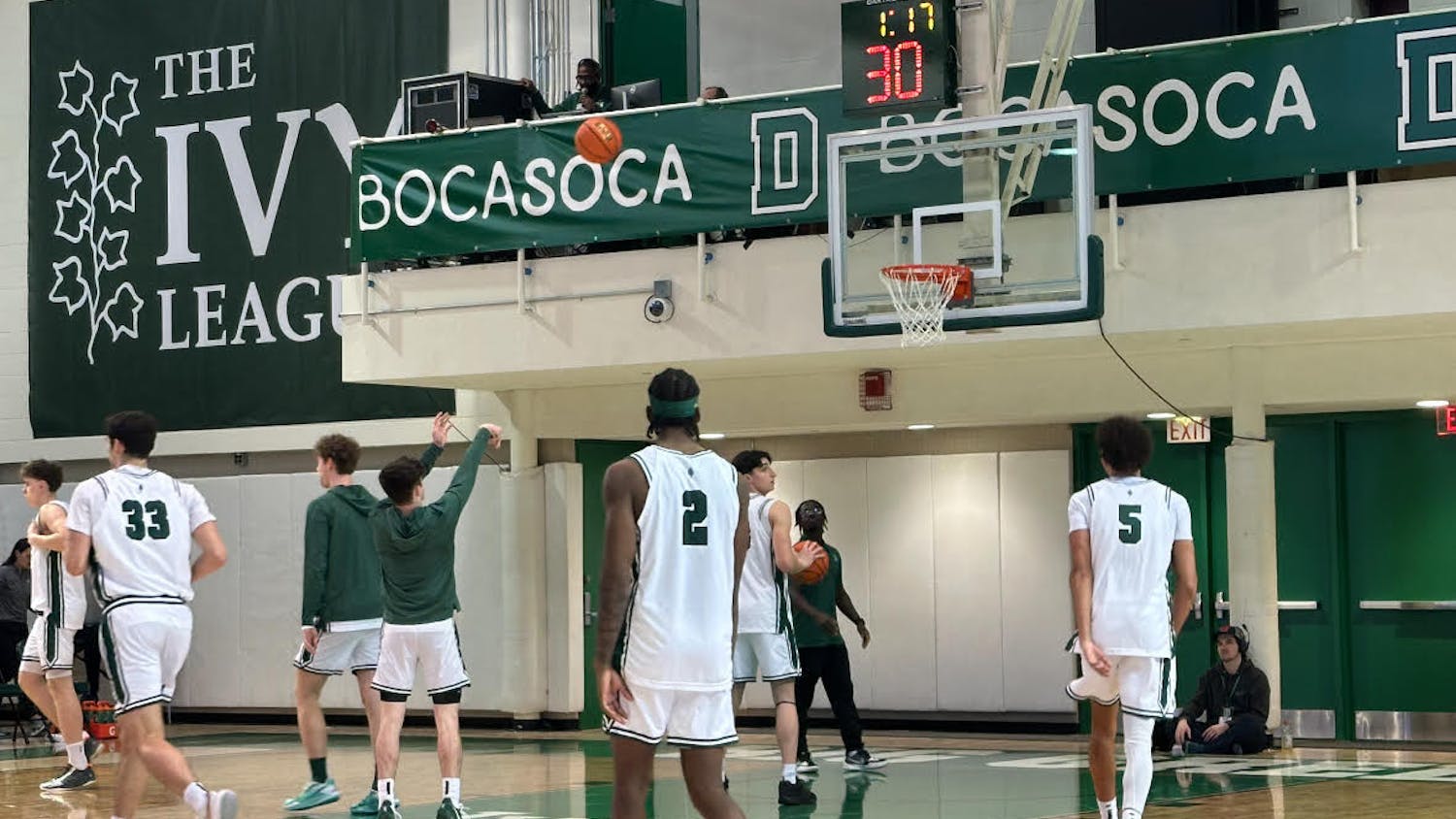With the Dartmouth campus buried under several feet of snow and students bundled up to fight sub-zero temperatures, it can often be difficult for off-season varsity athletes to practice during the winter. In spite of the elements, however, most student athletes find both the time and the energy to continue training in some form.
The men's soccer team, for example, meets five times a week for off-season training during the winter. The team lifts weights twice a week and practices drills indoors for the other three days, adding conditioning training during one of those three indoor practices.
The women's soccer team similarly practices despite the weather. Athletes run twice a week, lift three times a week and have individual practices two days a week. The team also usually participates in an additional captains' practice each week.
NCAA regulations place restrictions on off-season training, with rules stipulating that athletes are allowed to participate in "countable athletically related activities" for a maximum of four hours per day and 20 hours per week during a sport's season, according to the NCAA website. During the off-season, however, "only a student-athlete's participation in required weight-training, conditioning and individual skill instruction requested by the student-athlete" are allowed for a maximum of eight hours per week, the website stated.
The off-season creates opportunities for the team to develop, since a large portion of the athletes able to participate in practice on campus are freshmen. While upperclassmen are off-campus on leave or study abroad terms, freshmen gain valuable attention from members of the coaching staff and other more advanced players.
"Because our main seasons are during the Fall and Spring [terms], most soccer players go abroad over their sophomore Winter and take their off-term junior Winter," Patrick Murray '14, a member of the men's soccer team, said.
The lack of more experienced players creates a dynamic that allows many freshmen to take advantage of important one-on-one time with coaches, according to members of the women's soccer team.
"You obviously want to impress the upperclassmen and work really hard," Ari Kenyon '14 said. "[The off-season] is a crucial time there is pressure for you to be better and impress your teammates when they come back."
Women's soccer player Kelly Brait '14 said freshmen are expected to improve during the winter and are "naturally expected to work harder" when many members from the team are away.
Although the dearth of upperclassmen creates opportunities for younger players, it also means that regular-season team starters are absent from practices and workouts. While such a situation makes developing team strategy difficult, players interviewed by The Dartmouth said it opens up opportunities for those who normally would not play as often to get valuable playing experience.
"[Having some players absent] relieves a lot of the pressure because it gives the people here a lot more individual attention you don't feel as competitive," Brait said.
Men's rugby player Will Lehmann '12 said the lack of upperclassmen can also create some difficulties for the team.
The rugby team is a club sport not governed by NCAA rules, and it therefore has no officially defined off-season, according to Lehmann. The absence of upperclassmen places stress on the squad, because there is a disparity between players who have been playing for their entire Dartmouth career and those who are just learning the game.
Lehmann added, however, that Winter term creates a less pressured environment in which younger players can learn game rules and important skills that upperclassmen have already developed.
"[Winter is a] great opportunity for the freshmen to learn from the more experienced players outside the demands of the in-season practices," he said.
Although most of the rugby team's games take place in Fall and Spring terms, all players must always prepare for competition, according to Lehmann. The rugby team will play a game against the University of Delaware on March 4.
"We have guys who are coming from home or New York City, and they're having to drive to this game after not having played for two months now," he said. "Regardless, these guys are going to come back firing all cylinders."
The break from full practice can also serve as a reprieve for some players. Several athletes interviewed said they are able to participate in additional activities and explore opportunities outside their sports that they do not have time for when in season.
"Being out of season allows us to get more involved in campus activities and allows us, as freshmen, to extend our friend-base to more than just the soccer team," Murray said.



